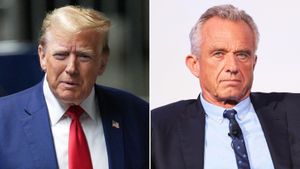On the evening of November 13, 2015, Paris experienced one of the deadliest terror attacks in its history, leaving the city and the world reeling. Coordinated by Islamic State militants, the assaults unfolded at various locations, including the iconic Stade de France, the Bataclan concert hall, and popular restaurants throughout the city. This horrific night ended with 130 people dead, making it the worst act of violence on French soil since World War II.
The events of November 13 began around 9:20 PM local time when three coordinated groups of attackers initiated their reign of terror. A popular soccer match between France and Germany was underway at the Stade de France, where bombs were detonated just outside the stadium. The sound of explosions filled the air, alarming both spectators inside and those watching on TV screens, as the match was witnessed by thousands of fans.
Just minutes later, another group of terrorists targeted nightlife hotspots across the 10th and 11th arrondissements, areas famed for their lively atmosphere and packed restaurants. One terrorist opened fire at Le Carillon bar on Rue Alibert, indiscriminately shooting at patrons enjoying their evening. Shortly after, attackers struck the Bataclan concert hall. During the concert of American rock band Eagles of Death Metal, the assailants stormed inside, taking the audience hostage and brutally killing many.
The scenes were devastating; witnesses reported chaotic moments as terrified concert-goers attempted to escape, only to find themselves trapped. Across the city, first responders rushed to the scenes, treating the wounded and assisting those fleeing from the violence. Parisians heard the distant wails of sirens and the frantic cries of fellow citizens, questions hovering thick with fear: Who could do this? Why would they attack our city?
French President François Hollande, who was attending the soccer match, quickly realized the severity of the situation. He announced the closure of the country's borders and declared a state of emergency. Speeches evaluating this unprecedented violence followed quickly as leaders from around the world expressed their solidarity with France. The French government mobilized vast resources for emergency services; hospitals were on high alert, prepared for the influx of casualties.
By the end of the night, the aftermath was grim. The dead included nationals from several countries, and dozens more were injured, echoing the sentiment of global unraveling as terror became palpable. Security measures tightened significantly across France and around the world, alarming citizens who now faced the fear of such violence becoming part of their daily lives.
Meanwhile, investigations commenced soon after the attacks. The assailants had been part of larger networks linked to the Islamic State, which had already been behind various terror acts across the globe. This brutal assault was seen as both revenge and part of their broader agenda to spread fear. Authorities later identified several attackers and confirmed their connections to prior operations, igniting debates about security and anti-terror procedures within Europe.
The Paris attacks evoked memories of previous tragedies, as the country found itself reeling and grieving the loss of innocent lives. Memorials quickly sprang up, with citizens coming together to mourn. On social media, hashtags like #PrayForParis flooded platforms as people worldwide expressed solidarity with the victims and their families.
Fast forward to today, the events of November 2015 are still fresh, surfacing debate about nationalism, immigration, and cultural integration across Europe. Many believe France must fortify its resilience against radical ideologies. Reforms on national security have been implemented, and discussions around public safety continue to influence policies across the continent.
Beyond political dialogues, the societal healing process persists: families of those lost have formed organizations, advocating for peace and remembrance. Concerts and gatherings dedicated to honoring the victims take place regularly, allowing the community to express grief and unity against the forces of hate.
The scars of the Paris attacks serve as poignant reminders of the challenges facing global society against hatred and intolerance. It remains imperative now more than ever to stand up against such acts and reaffirm commitment to human solidarity. The world observes the resilience of France, and as they navigate forward, the memory of those lives lost will indelibly influence future generations.



